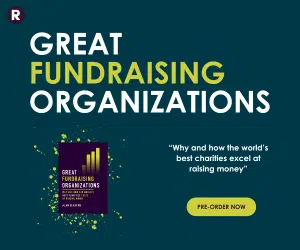Database advice
UK Fundraising welcomes a new columnist this month. Peter Wylie will be writing a monthly column on fundraising databases. Peter holds a doctorate in industrial psychology from Columbia University, and is an expert on how non-profit organisations can do a far more efficient job of fund raising by carefully mining their donor databases.
Read his first column on the issue of US and UK fundraising databases below.
Database marketing: UK and US
Dear Dr. Wylie: I’m glad you’re writing a column on database fundraising, but I’m a little concerned that your experience is unique to North America. As you know, there are some pronounced differences between our two countries despite the fact we speak the same language (more or less). Can you speak to my concern.
Advertisement
Dear Concerned: Were I in your shoes, I suspect I might feel very much as you do. There certainly are big differences between our two cultures and the ways people do business in them. At the same time, I’m convinced that the principles of database marketing are equally applicable to fundraising in both our countries primarily because of an exceptional book I happened upon a little over a year ago.
It’s called Direct and Database Marketing and it’s written by Graeme McCorkell, a UK citizen who makes his home in Shropshire. You should read the book and judge for yourself, but I think you’ll find that Mr. McCorkell offers a number of concepts that those of us in the field of fundraising can and should be borrowing.
For example, take these three concepts that McCorkell devotes a number of pages to:
the lifetime value of a customer
customer share
statistical modeling
Shouldn’t fund raisers be thinking about the lifetime value of their donors? Shouldn’t we be using our databases to track the long-term value of our donors and to recognize that value with the non-profit equivalent of frequent flyer miles and free upgrades to first class.
Shouldn’t fund raisers be thinking about “donor share” the way database marketers in corporations have come to realize that MARKET share may not be nearly so important as CUSTOMER share–the portion of a customer’s disposable income they get versus what a competitor gets?
Shouldn’t fund raisers be doing the same kind of statistical modeling that profit making direct marketers do to predict who buys and who doesn’t and who to mail to three and four times as opposed to just once?
I think McCorkell’s ideas are right on the money for fundraising is the U.S. They have to be even more on target for fundraising in the U.K. But back to your concern: I have every intention of making suggestions I offer in future columns as relevant to BOTH our cultures as I can. But if, for any reason, I miss the mark a bit, please contact me either through the Web site or by e-mail so I can try to be more responsive to your questions.
Peter Wylie holds a doctorate in industrial psychology from Columbia University. He is an expert on how non-profit organizations can do a far more efficient job of fund raising by carefully mining their donor databases. His business phone is (202)332-7571; his e-mail address is pb********@ao*.com



